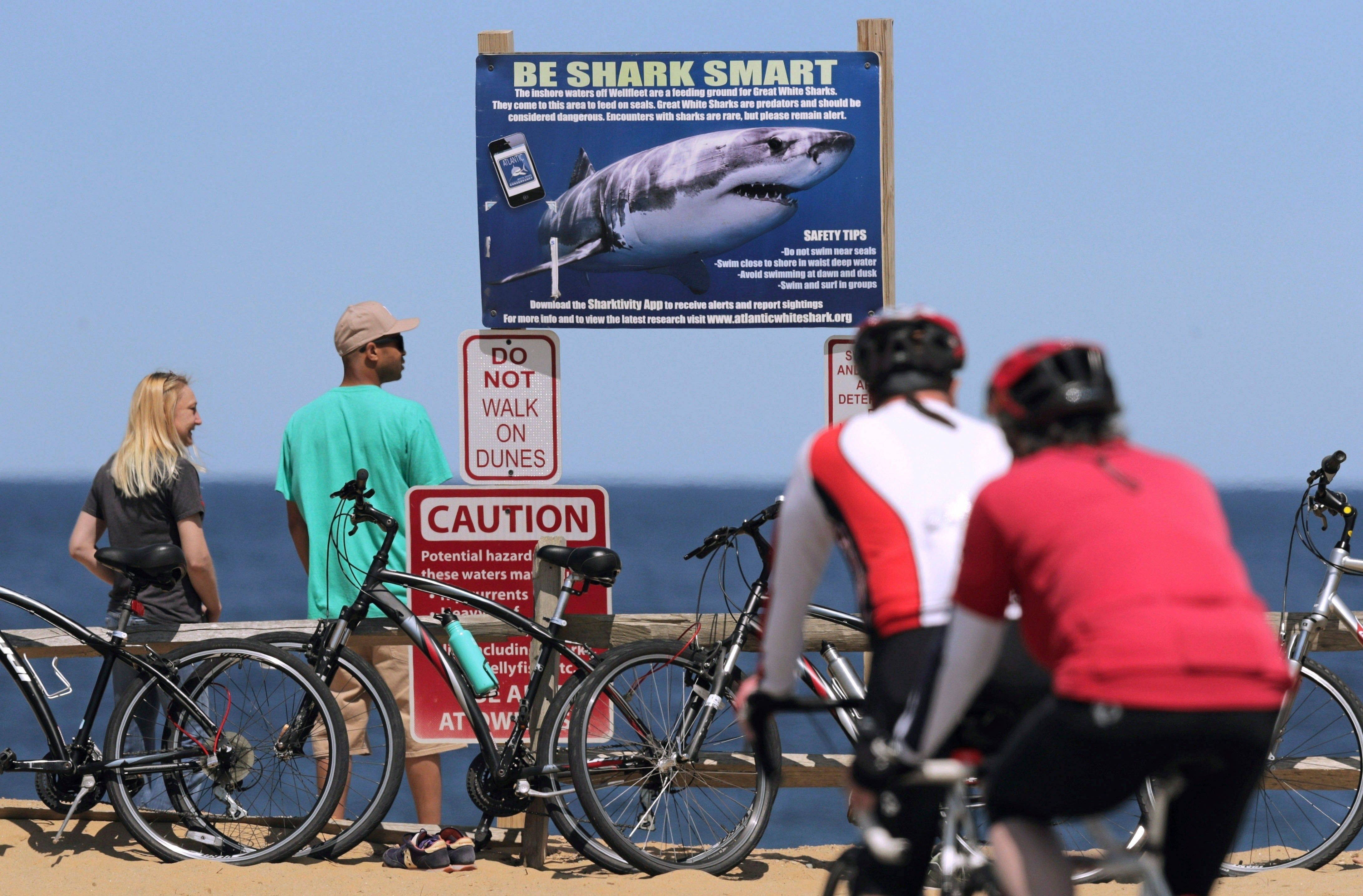'Smartphones' for sharks: Scientists upgrade sensors to keep track of Cape Cod's white sharks
Scientists monitoring the white shark population in the waters off Cape Cod are attaching better sensors to the predators, including cameras

Scientists monitoring the white shark population in the waters off Massachusetts' Cape Cod are attaching improved sensors, including cameras, to the predators to help scientists keep track of their whereabouts and to keep beachgoers informed and safe, researchers said Tuesday.
The program comes just as tourists are filling up hotels and rental properties on the Cape for the summer — and white sharks are returning in greater numbers to feed on the region's abundant seals.
Interactions between white sharks and humans are rare. But the risk is still there. There have been five in Massachusetts since 2012 — three of them classified as bites, one of which was fatal, said Greg Skomal, the state Division of Marine Fisheries shark expert.
“So as a result, we’ve intensified our research off the Cape to study various aspects of white shark behavior," Skomal said.
For more than a decade, the fisheries division and the nonprofit Atlantic White Shark Conservancy have tagged about 300 sharks with acoustic sensors that emit a high-frequency sound to an array of receivers along the coast. Public safety officials and lifeguards are notified when a shark swims within range of an acoustic receiver.
This year, researchers are attaching more camera sensors to the predators.
They capture more than just video. The sensors can detect a shark's depth, direction, surrounding water temperature and whether it’s accelerating or slowing down. The technology allows scientists to monitor the sharks on a second-by-second basis, Skomal said.
Megan Winton, a staff scientist at the Atlantic White Shark Conservancy, calls it giving smartphones to sharks.
“They’re outfitted with an incredible array of sensors that tell us about the animal’s movements and their environment," she said, adding that it's “essentially just riding on the back of a white shark."
The information is downloaded to a free app available to the public to reduce encounters and promote safety.
One video captured by a camera tag clamped to a shark’s dorsal fin shows the predator moving into water about 4 feet (1.2 meters) deep close to shore to go after a seal, stirring up a storm of sand from the bottom. The seal ultimately escaped.
Sharks are patient hunters.
“They slowly patrol the shoreline very methodically until they essentially have a chance to make their move," Winton said.
The technology also has provided insight into how curious sharks are. They have been seen coming to the surface to nibble a lobster buoy or check out a bird or some other piece of flotsam, she said.
Researchers also have started using drones to help spot sharks from above, a method that has been used in other parts of the world, including Australia, Skomal said.
The drawback of the sensor system is that if a shark has not been tagged, it won't be detected. But the program does its best to provide information to the public so they can make informed decisions while at the beach.
“We want them to understand these animals and their habits the way we do,” Winton said.
Bookmark popover
Removed from bookmarks